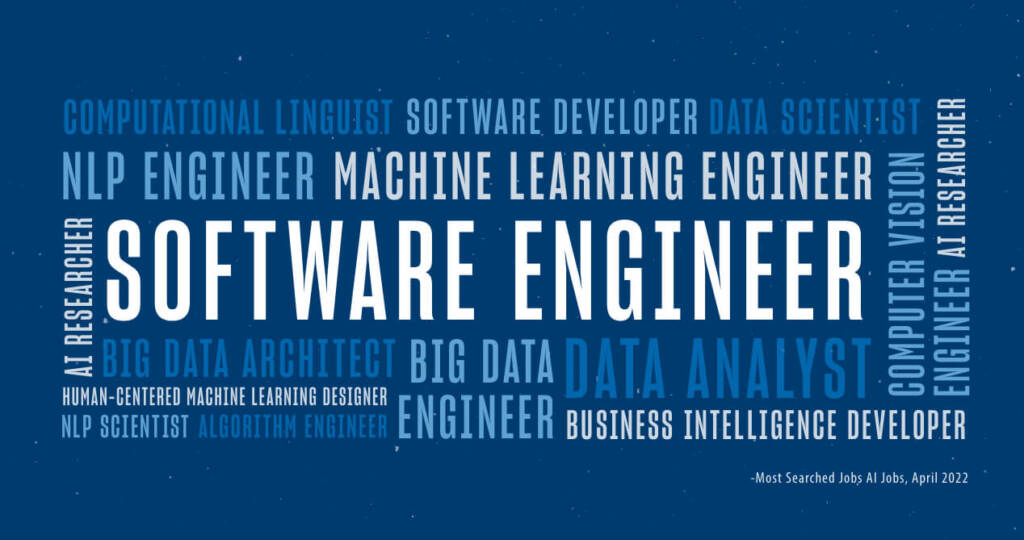Your Career Guide to This In-Demand, Data-Driven Field
Vast volumes of valuable data are now available to every company — data collected as part of doing business and data harvested from other sources that is relevant to their organization. Business intelligence analysts play an essential role in making sense of this data, digging deep to discover useful information, identify trends and generate actionable business insights. Business knowledge, data analysis and artificial intelligence (AI) are central to the work of the modern business intelligence (BI) analyst.
What Is a Business Intelligence Analyst?
A business intelligence analyst is a skilled professional who is responsible for transforming data into insights that drive value for their organization and communicating such opportunities to company decision-makers.
“Data is the new oil” is a metaphor now frequently used to describe the immense value of information:
- Information that flows from customer relationship management (CRM) systems, IoT-connected devices, social media and countless other sources
- Information that can be mined and tapped to power business efficiencies and revenue opportunities
A business intelligence analyst’s primary goal, according to SimpliLearn, is to “empower decision-makers with accurate, real-time, actionable insights that enhance workforce efficiency, increase productivity, strengthen market positioning, improve the competitive edge and augment customer experience.”
CIO explains that the role has become vitally important because “BI analysts typically discover areas of revenue loss and identify where improvements can be made to save the company money or increase profits. This is done by mining complex data using BI software and tools, comparing data to competitors and industry trends and creating visualizations that communicate findings to others in the organization.”
What Does a Business Intelligence Analyst Do? [Day in the Life]
Business intelligence analysts use data modeling, data analysis, data visualization and, increasingly, AI-related skills and techniques to develop insights that help company managers, executives and departments develop informed strategies and business decisions. Their role notably involves interacting with key stakeholders to share their findings.
SimpliLearn describes key ongoing “Day in the Life” tasks and responsibilities as follows:
- Mining and analyzing organizational data, including financial, employment, expenditure and revenue reports
- Compiling data about reported problems and recommending solutions that increase the efficiency of processes and performance of systems
- Performing cost-benefit analyses on projects aimed to optimize the performance of the organization
- Collaborating with management and coworkers to enforce improvements
- Assessing the efficacy of adopted strategies
- Engaging with teams to determine resources, personnel, equipment and facilities needed
- Consulting with relevant stakeholders and management to map strategic goals
- Conducting interactive presentations and preparing reports for effective communication of data to audiences
One interesting example of the work of a business intelligence analyst involves the use of chatbots to assist customers and answer their questions. AI technologies and data mining techniques enable efficient analysis of data from chatbots, emails and social media. Such data helps a BI analyst gain a deeper understanding of customers in order to serve them better.
Education Required for a Business Intelligence Analyst (Degree vs. Non-Degree Paths)
Most business intelligence analysts hold a bachelor’s degree in a field like computer science, statistics, business studies, data analytics, data science, finance, economics, engineering, mathematics, biological sciences, etc. It is most helpful, but not necessary, to have undergraduate education that has provided insight into business processes and organizational operations. Educational background that has provided an understanding of databases and any data-related field is also extremely helpful.
Moving beyond undergraduate education, many aspiring BI analysts choose to earn industry certifications. Options here include the IBM Certified Designer – IBM Cognos Analytics Author V11 and the Microsoft Certified: Data Analyst Associate; CIO includes these on its list of eight top business intelligence certifications. Additional BI-related certifications are available through Coursera and Udemy.
More comprehensive educational options can be found at the master’s degree level, where there is a growing number of master’s in business intelligence programs, as well as MS programs in such highly relevant disciplines as data science and artificial intelligence. The master’s degree option is ideal not just to gain a more comprehensive understanding of business intelligence and related disciplines, but also to gain a competitive edge in the job market.
For example, a master’s in AI will provide a breadth and depth of skills and knowledge necessary for succeeding as a BI analyst. Knowledge of artificial intelligence enables BI analysts to design AI-enabled CRM systems and apply AI functionality to widely used CRM platforms like Salesforce and Zoho — thereby upgrading them to become self-updating, learning, auto-correcting systems.
Get Your Free Checklist: 8 Key Factors to Consider Before Choosing an AI Master’s Program (PDF)
Business Intelligence Analyst Hard Skills
The following are some of the most relevant and important hard skills for business intelligence analysts and those considering pursuing a career in this field:
- Excel
- Tableau
- Power BI
- SQL / Python / R / C++ / SAS
- Understanding of algorithms
- Database administration
- Data analysis
- Quantitative analysis
- Data visualization
- Reporting and presentation skills
- Overall business acumen
- Specific industry knowledge
Business Intelligence Analyst Soft Skills
The following are some of the most relevant and important soft skills for business intelligence analysts and those considering pursuing a career in this field:
- Problem solving
- Critical thinking
- Intellectual curiosity
- Creativity
- Advanced vision
- Attention to detail
- Organization / time management
- Ability to collaborate with team members on projects
- Verbal and written communication skills
- Ability to summarize and translate intelligence to enable key business partners/stakeholders to take action
Business Intelligence Analyst vs. Other Similar Jobs
There are a range of other professional positions that are available within the field of business intelligence and closely related disciplines. In addition to business intelligence analyst, these include:
- Business intelligence developer
- Business intelligence manager
- Data engineer
- Data scientist
- Artificial intelligence analyst
- Artificial intelligence engineer
- Machine learning engineer
- User experience designer
How to Move Up the Business Intelligence Analyst Ranks
As mentioned above, certifications can also be very helpful. But the short answer to the question of how to move up the ranks as a business intelligence analyst is two-fold: Get some experience and earn a master’s degree.
Further, the current reality is that one of the best ways to advance in business intelligence is to earn your master’s in artificial intelligence. This is because AI is essential to the work of advanced business intelligence.
Why Artificial Intelligence Is Key to the Future of Business Intelligence
AI can enable BI analysts with the necessary tools to produce clear, useful insights from the data they analyze. For example, an AI-powered system can determine the significance of each datapoint on a granular level. This helps BI analysts understand how that data can translate into real business decisions. AI powers industry’s ability to synthesize vast quantities of data and automate decisions into coherent plans of action.
A range of top tech companies — from established giants such as Microsoft, Google and IBM to startups — are seeking to capitalize on this approach. In fact, IBM’s research division has announced that it is pursuing an “AI first approach to enterprise operations,” directing cross-disciplinary research teams “rethink enterprise architecture and transform business processes by combining AI algorithms, distributed systems, human computer interaction and software engineering.”
Companies (By Industry) Hiring Business Intelligence Analyst
A recent LinkedIn jobs search for “business intelligence analyst” revealed a wide variety of employers across many fields searching for talented BI professionals:
- Wayfair
- Forrester
- Virgin Orbit
- MIT Lincoln Laboratory
- Chewy
- Amazon
- TikTok
- Boston University
- Wells Fargo
- HubSpot
- Dana Farber Cancer Institute
- Johnson & Johnson
- Barnes & Noble
- ViacomCBS
Business Intelligence Analyst Career Outlook
Demand for business intelligence analysts is on the rise across a wide range of industries due to the significant value they are able to add to the organizations they work for. The LinkedIn BI analyst job search referenced above yielded more than 23,000 positions. A similar search on ZipRecruiter returned over 200,000 listings. (Note: The number of job listings is updated in real time and is subject to change)
According to employment website Indeed, “The U.S. Bureau of Labor Statistics categorizes business intelligence analysts into the career group of computer and mathematical occupations. The projected job growth rate for this group is 10% between 2018 and 2028, which is faster than the average job growth rate for all occupations. This means business intelligence analysts should experience strong job stability and should have good career opportunities available to them.”
Business Intelligence Analyst Salaries
Business intelligence analyst salary figures vary significantly based on the role and responsibilities, experience, industry, location and more. Also, salary estimates provided by leading employment websites are often adjusted in real time based on changing data.
- Indeed cites an average business intelligence analyst salary of $92,620.
- Glassdoor cites an average annual salary of $84,442 – over $100,000 for a senior BI analyst and $114,000 for a lead BI analyst.
- O*NET, an occupational information resource, cites an average BI analyst salary of $98,230.
- ZipRecruiter cites an average annual BI analyst salary of $85,272.
- Recruiter.com reports that, “Professionals in this field generally earn $52,950-$165,230 annually.”
FAQs About Business Intelligence Analyst Careers
Why are business intelligence analysts in such high demand?
There is high demand for business intelligence analysts across a wide range of industries — finance, health care, entertainment, media, education, high-tech, marketing and more — due to the significant value they are able to add to the organizations they work for.
What is the salary range for business intelligence analysts?
Recruiter.com reports that business intelligence analysts generally earn $70,000–$90,000 annually. Salary estimates trend higher for senior and team leader BI roles.
What is the connection between artificial intelligence and business intelligence?
The two disciplines are closely related because AI can enable BI analysts with advanced tools to produce clear, useful insights from the data they analyze. AI powers the ability of BI analysts to synthesize vast quantities of data and automate decisions into coherent plans of action.
What are some of the key skills that business intelligence analysts need?
In addition to a range of technical skills like programming languages, data analysis and visualization tools, BI analysts need a strong understanding of algorithms and database administration, reporting and presentation skills, overall business acumen and specific industry knowledge. Key soft skills include problem solving, critical thinking, intellectual curiosity, time management, and verbal and written communication prowess.
This report was developed by the University of San Diego’s career-enhancing, online Master of Science in Applied Artificial Intelligence program, an artificial intelligence industry thought leader and education partner.



